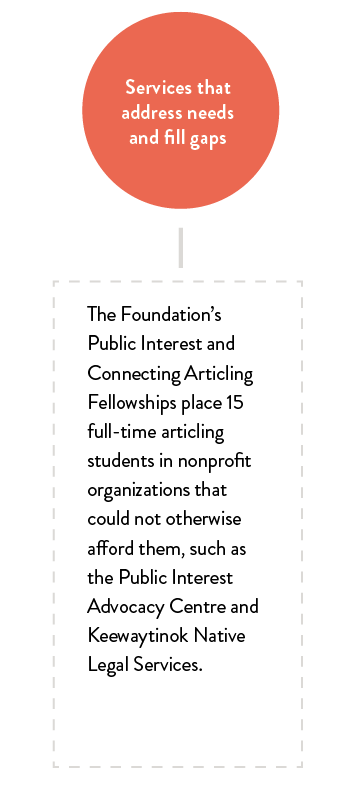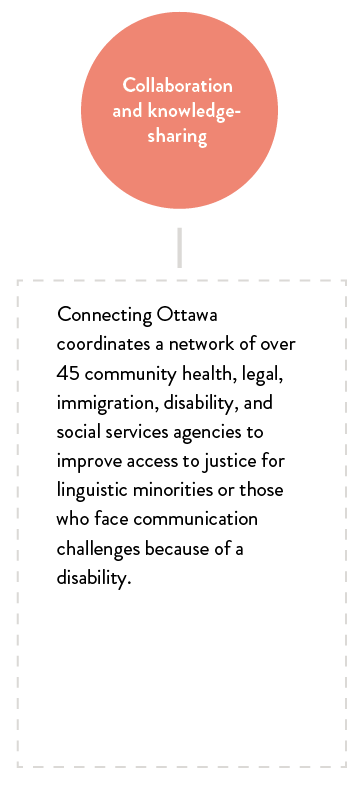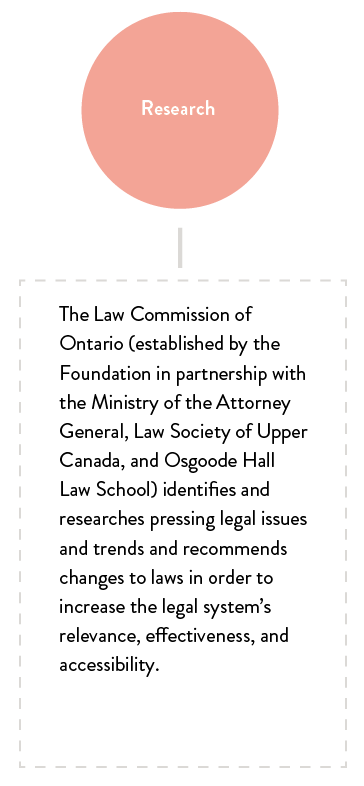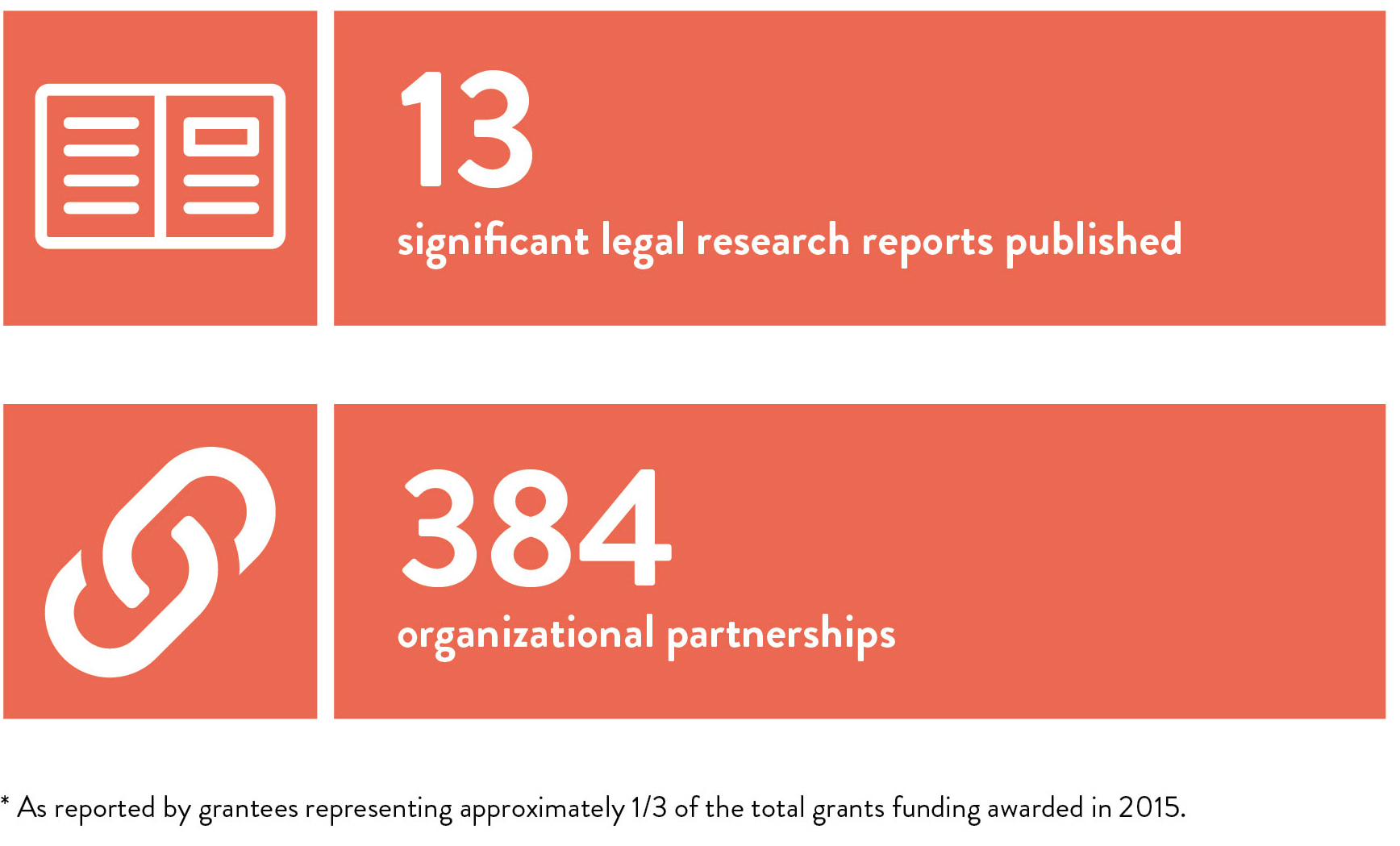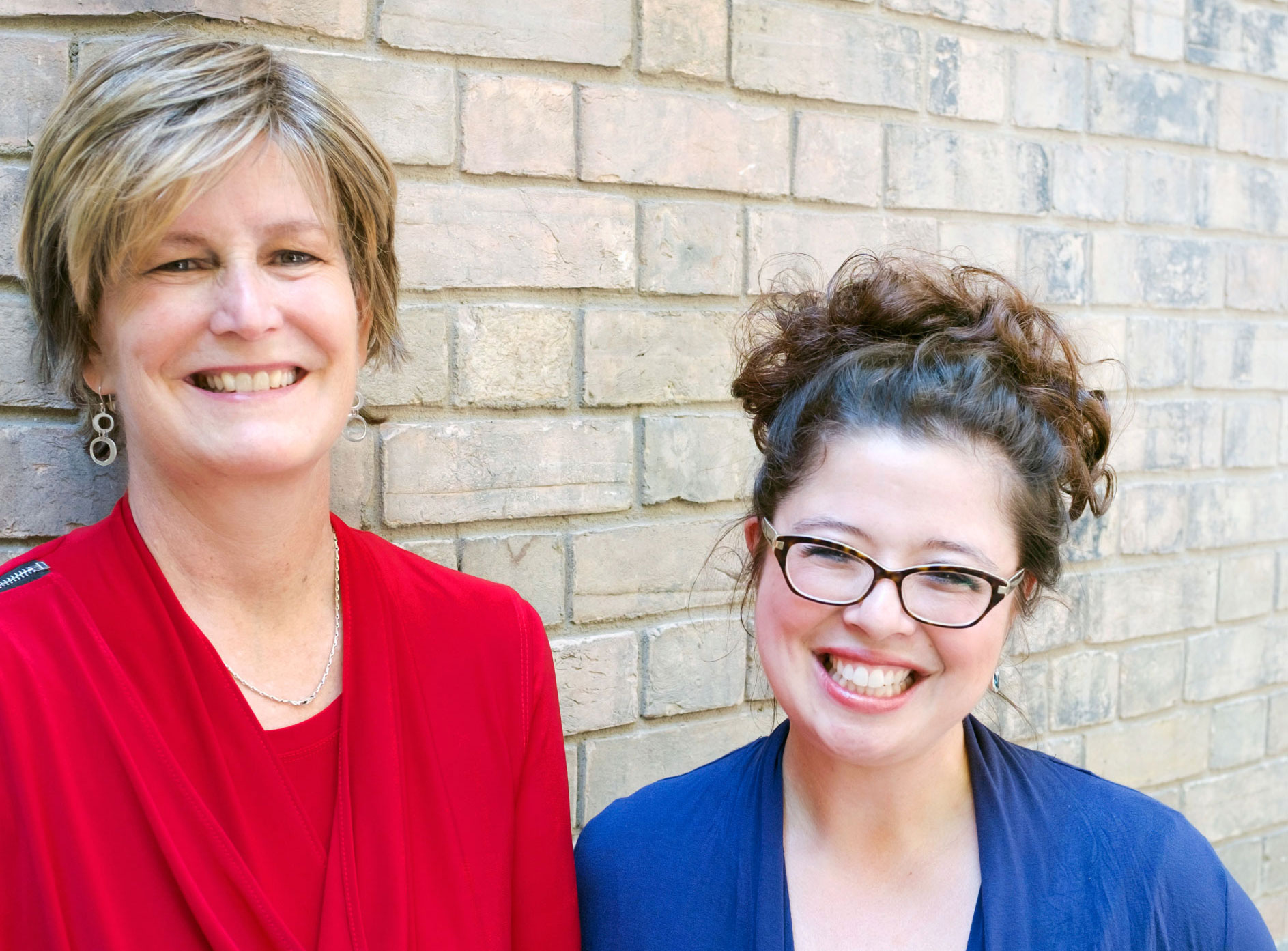A marriage to make Ontario’s PLEI services stronger
There’s nothing blue but there is something old, something new, and something borrowed in the recent “˜marriage’ of Ontario’s sole-purpose public legal education and information (PLEI) organizations.
Long-standing grantees of the Foundation, Community Legal Education Ontario (CLEO) and Ontario Justice Education Network (OJEN) came together to create a unique union.
Like many modern marriages, CLEO and OJEN are each keeping their own identities. They’re not merging but they are collaborating under a distinct banner called LawConnect to make each other stronger and deliver more holistic PLEI.
Both organizations specialize in PLEI but, in general, the type of PLEI and clients are different. CLEO, a community legal clinic, provides practical legal rights information to low income and disadvantaged communities, often through intermediaries such as settlement or housing workers. OJEN partners with schools and community organizations to educate young people about the justice system and how it works. There are areas, though, where CLEO and OJEN’s expertise and audiences do, or could, meet up.
“Given our unique and complementary roles we realized that if we joined forces we could do our work better and reach more people,” explained CLEO’s executive director, Julie Mathews. “For example, some of the youth that OJEN works with need specific information about their legal rights as well as information about how the justice system works. Many of the people CLEO is reaching also need to understand how the justice system works and how they can act as early as possible to try to minimize an escalation of their legal problem.”
CLEO and OJEN moved in together. Beyond the obvious cost-savings of sharing an office and resources, being in one space inspires the cross-pollination of their strengths, expertise, and connections.
One of LawConnect’s first projects is a provincial PLEI conference taking place in October 2016. LawConnect, with The Action Group on Access to Justice (a Foundation grantee and an initiative of the Law Society of Upper Canada), is developing conference programming that benefits from each organization’s experience and covers the spectrum of PLEI. OJEN’s expertise in education and its connections to professionals in the justice sector combined with CLEO’s substantive legal expertise and relationships with frontline workers in the nonprofit sector creates a broader conversation about how PLEI and justice education can advance the access to justice agenda.
The Foundation played a unique match-matching role in this pairing.
“The Law Foundation of Ontario saw this opportunity and was completely instrumental in bringing it together,” said OJEN’s executive director, Jessica Reekie. “At no point were we pressured to merge. That’s an important point because it recognizes we’re distinct organizations. We’re complementary but we do have differences — which I think was a key understanding in this process.”
